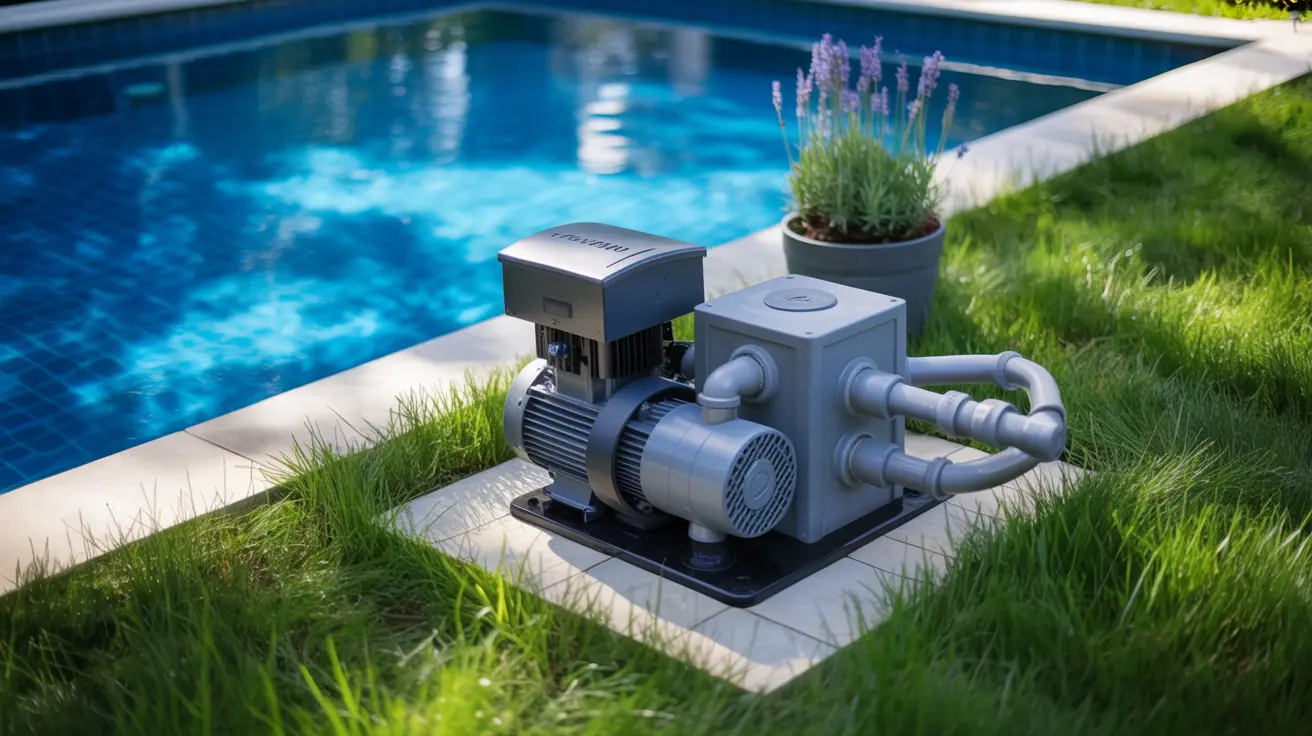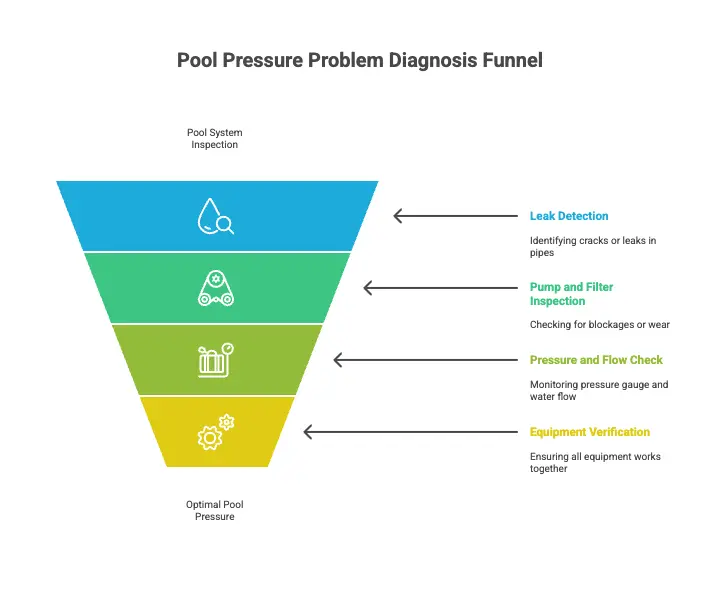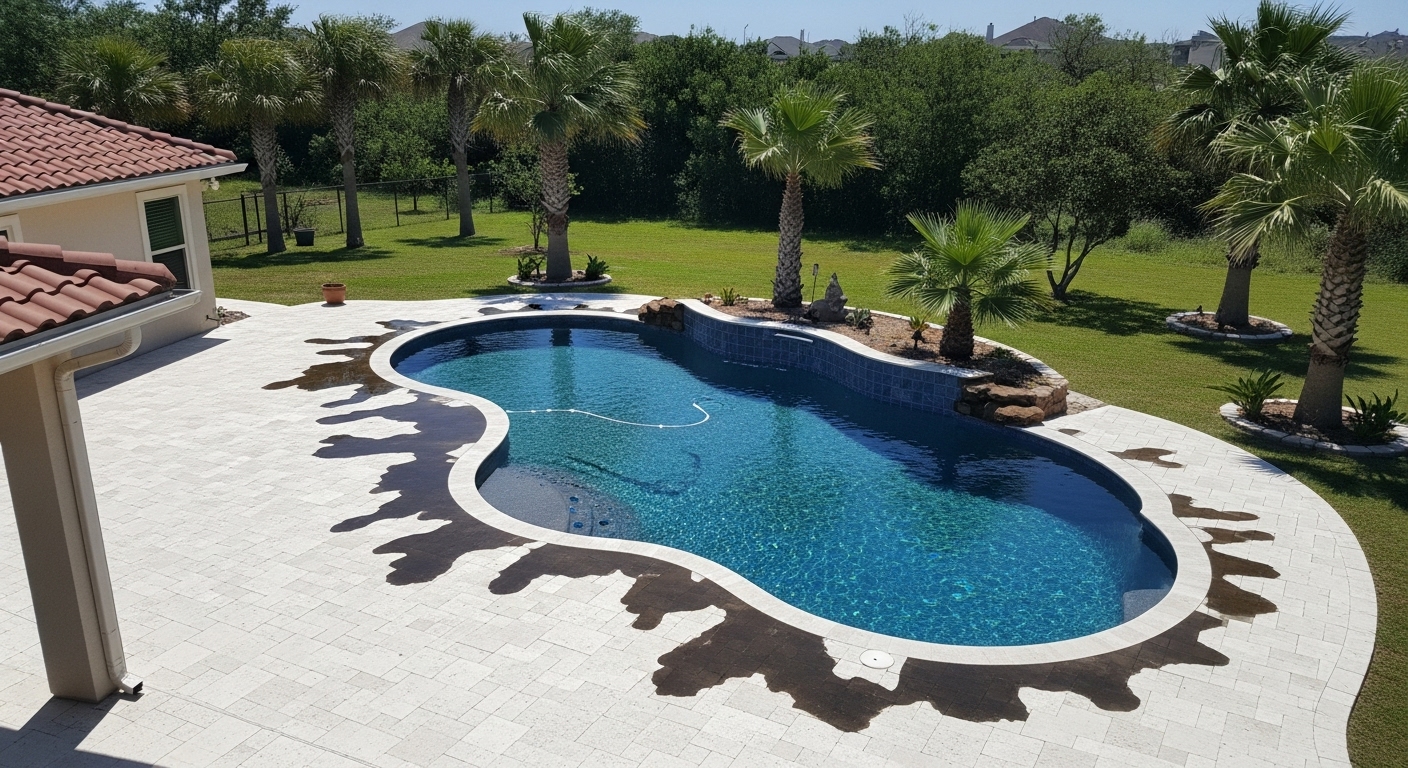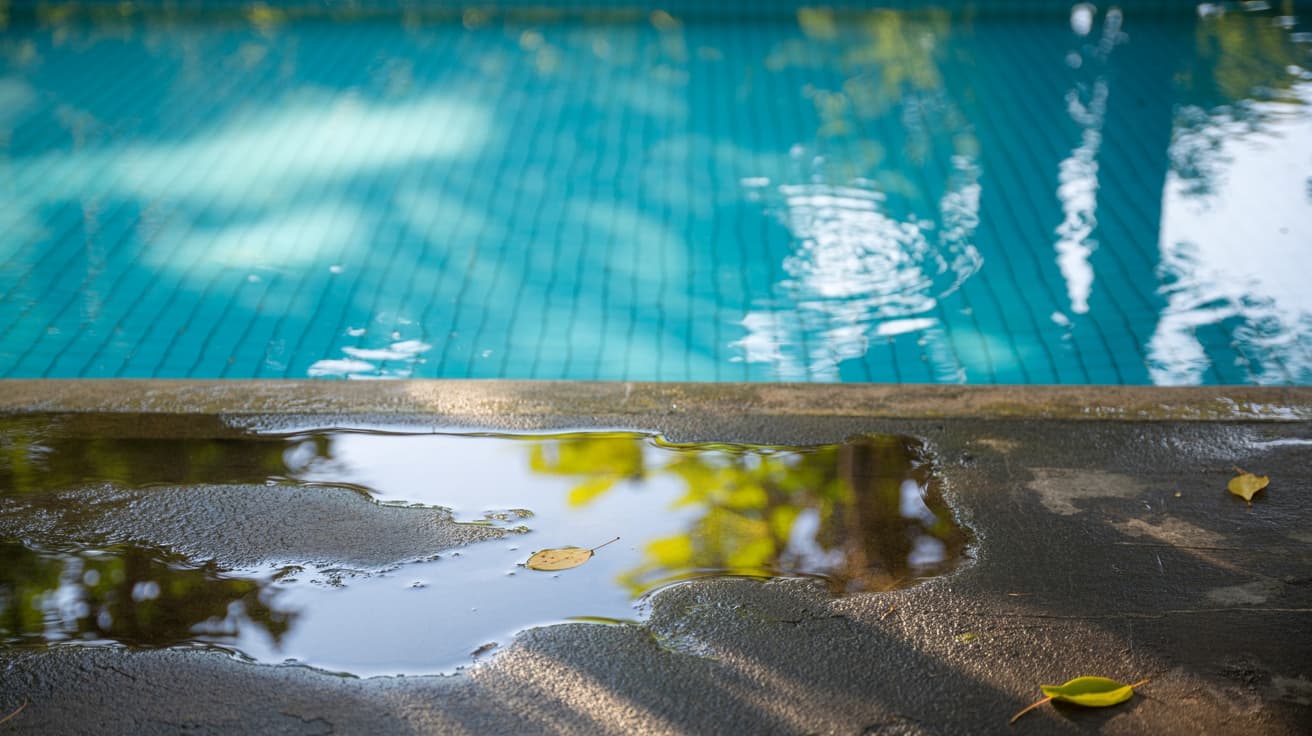Is Your Pool Pump Losing Pressure? Understanding Low Water Pressure in Corpus Christi

Does your pool pump seem weaker lately, or is the pressure gauge showing lower numbers than usual? If you’re noticing low water pressure in your pool or the pool pump is losing pressure, you’re not alone. Many pool owners in Corpus Christi experience these issues—often leading to poor filtration, cloudy water, and less efficient pool maintenance. This guide is for anyone who wants to keep pool water crystal clear, the pool filter working smoothly, and their entire pool system operating at its best. Read on to learn about the most common causes, how to troubleshoot, and the importance of calling in PoolRX LLC when you need expert help.
What Are the Signs of Low Pool Pump Pressure?
When your pool pump starts to lose pressure, the signs are usually clear:
- The pressure gauge reads lower than usual on the pool filter system.
- Poor water flow from pool cleaners or return jets.
- Pool water stays cloudy even after running the pump and filter.
- The pool pump seems to strain or emit unusual noises.
It’s essential to catch these warning signs early because low pressure can reduce the flow of water through your filter, harming pool maintenance and cleanliness.
Why Is Water Pressure Important in Your Pool System?
Water pressure keeps the pool water circulating, ensures debris is filtered out, and maintains optimal water flow for features like fountains and heaters. Low pool filter pressure can make it hard for the filter to capture dirt, reducing the effectiveness of your pool maintenance routine. High or low water pressure in your pool, if unattended, leads to water quality issues and can strain the pump and filter, causing premature equipment failure.
What Are the Common Causes of Low Pool Pump Pressure?
Let’s look at some of the most common causes of low water pressure:
- A clogged filter that restricts water flow through the filter system.
- Low water level, causing air to enter the system.
- Blocked or dirty pump basket or skimmer basket.
- Leaks or air entering the suction side of the pump.
- Obstructions in the pool pipes or plumbing.
- Worn or improperly installed pool filter cartridges or sand filter issues.
Knowing the causes of low water pressure helps you target the right solution.
How Does a Clogged Filter Affect Pressure?
A clogged pool filter is one of the main reasons for low water pressure. Whether it’s a sand filter, cartridge filter, or DE filter, debris can build up and reduce the flow of water. When the filter needs to be cleaned or replaced, your pool pump has to work harder, but water pressure in your pool still drops. Keep the filter clean and schedule regular filter maintenance—it’s a core part of pool care.
How Can a Low Water Level Cause Low Pressure?
If your pool’s water level drops below the skimmer, air can enter the pump system. This not only causes the pump to lose pressure but also creates noises and bubbles from the return lines. Air pockets reduce water flow to the pump, and the pressure side can’t create enough back pressure for optimal water filtration.
Always maintain the correct pool water level to avoid sucking air into the pump and filter system.
Could a Pump Basket or Skimmer Cause Pressure Issues?
If your skimmer basket or pump basket is full of debris, water can’t reach the pump efficiently, causing low pump pressure. Regularly empty the pump basket and skimmer—especially after storms or heavy pool use. Blockages in these areas can reduce water flow and the filter pressure gauge will show lower readings.
What Role Does the Pressure Gauge Play in Diagnosing Problems?
The pool filter pressure gauge is your window into the health of your pool filtration system. A sudden drop on the pressure gauge may indicate a clog, leak, or low water level, while a steady increase suggests it’s time to clean the filter. Regularly check your pool filter pressure gauge to spot issues before they escalate.
Why Do Air Leaks in the Pump System Cause Low Water Pressure?
When air leaks into the suction side of the pump, it can disrupt the pressure in your pool system. This typically happens around the lid of the pump basket, pool pipes, or fittings. If you spot bubbles out the return or hear gurgling from the pump, it’s time to inspect for air leaks. Sealing these leaks restores normal pump pressure and keeps water moving efficiently through the filter and pool system.
Could the Pool Filter Itself Cause Low Pressure?
Absolutely. When the cartridge filter is old, torn, or installed incorrectly, or a sand filter lacks sufficient sand, the pool filter pressure can drop. DE filters need regular maintenance as well—insufficient DE powder or internal grids in poor shape can create low pool filter pressure. If you’ve cleaned the filter and still notice low water pressure, it may be time to replace or repair the filter tank or internal components.
When Do You Need a Pool Professional for Pool Pump Pressure Problems?
If you’ve tried cleaning the filter, ensuring proper water level, and checked the baskets but still face low pressure, it’s time to get a pool professional. PoolRX LLC uses Leaktronics’ industry-leading leak detection equipment to check your entire pool system—spotting leaks, blockages, or hidden pump and filter problems. Local expertise means faster diagnosis and repair, keeping your pool clean, safe, and enjoyable.
How Does PoolRX LLC Diagnose Pressure Problems?
Our process combines the latest technology and hands-on expertise:
- Using leak detection equipment to locate cracks or leaks in pool pipes and fittings.
- Inspecting pump and filter systems for hidden blockages or mechanical wear.
- Checking the pressure gauge, filter system, and water flow to spot subtle issues.
- Verifying all pool equipment is working together for optimal water flow and pressure.
Proper diagnosis ensures your swimming pool returns to peak performance fast.

Key Points to Remember
- Low pressure in your pool pump typically shows up as weak water flow or a low reading on the pressure gauge.
- Common causes of low water pressure include a clogged filter, low water level, blocked pump basket, or air leak in the pump system.
- Regular pool maintenance—emptying baskets, cleaning the filter, checking water levels—helps maintain optimal water flow.
- The pool filter pressure gauge is a helpful tool for spotting issues early; abnormal readings shouldn’t be ignored.
- Professional help is important if you’ve tried basic fixes with no success or suspect leaks in the pump or plumbing.
- PoolRX LLC combines local knowledge with Leaktronics’ top-tier leak detection equipment for reliable diagnosis and repair in Corpus Christi.
If your pool pump is losing pressure or you’re seeing signs of low water pressure, it’s time for a thorough check. Contact PoolRX LLC to keep your pool pump, filter, and swimming pool running at their best—so you can enjoy stress-free pool care all season!

Discover More Blog Posts
Explore our collection of informative and engaging blog posts.

How to Maintain a Clean and Healthy Pool

How to Maintain a Clean and Healthy Pool

How to Maintain a Clean and Healthy Pool
Discover Peace of Mind with Our Leak Detection & Inspection Services
Concerned about leaks or the overall health of your pool? Pool RX LLC is your trusted partner for comprehensive leak detection and pool inspection. Our expert team utilizes advanced technology to identify and address issues efficiently, ensuring your pool remains a sanctuary of relaxation and enjoyment. Schedule your service today and swim with confidence, knowing every drop is where it should be.


